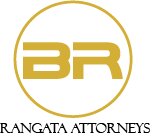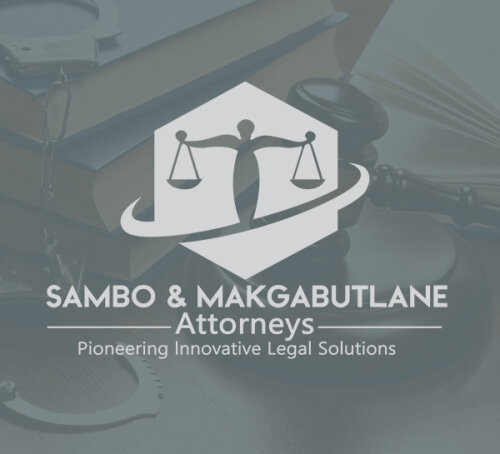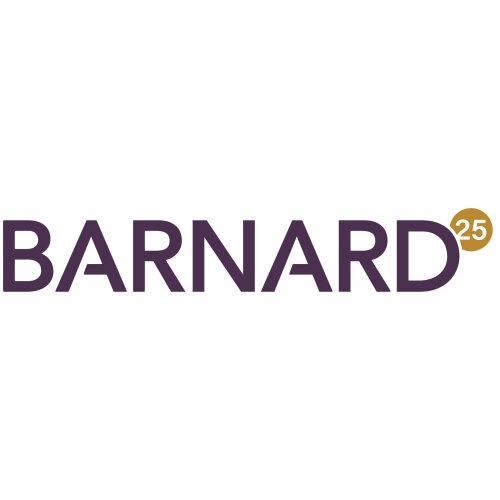Best Public-Private Partnerships (PPP) Lawyers in Pretoria
Share your needs with us, get contacted by law firms.
Free. Takes 2 min.
List of the best lawyers in Pretoria, South Africa
About Public-Private Partnerships (PPP) Law in Pretoria, South Africa
Public-Private Partnerships, commonly known as PPPs, refer to collaborative agreements between government entities and private sector companies to finance, construct, operate, and maintain public infrastructure projects or services. In Pretoria, as the administrative capital of South Africa, PPPs play a crucial role in the development of essential infrastructure such as roads, hospitals, water supply systems, and public transport. These partnerships aim to leverage the strengths and resources of both the public and private sectors, offering innovative solutions to improve service delivery and infrastructure development. The legal environment governing PPPs in Pretoria is influenced by national policies and regulations, with local adaptations made to suit Pretoria's specific requirements.
Why You May Need a Lawyer
Navigating Public-Private Partnership arrangements involves complex legal considerations. Some situations where you might need legal help include negotiating and drafting PPP agreements, ensuring regulatory compliance, addressing disputes between parties, understanding tax implications, and managing project risks. Whether you are a government official, a private investor, a contractor, or a consultant, an experienced lawyer can help you interpret South African PPP laws, facilitate negotiations, review documentation, and provide counsel throughout the project lifecycle. Legal experts can also assist in due diligence, procurement issues, and compliance with Public Finance Management Act (PFMA) requirements, making sure your interests are protected at every stage.
Local Laws Overview
The legal framework for Public-Private Partnerships in Pretoria is primarily governed by South African national legislation, including the Public Finance Management Act (PFMA), Municipal Finance Management Act (MFMA), and supporting regulations such as the Treasury Regulation 16 on PPPs. These laws prescribe the processes and procedures that must be followed for initiating, structuring, and implementing PPPs. They set out requirements for feasibility studies, value for money assessments, public sector comparator analysis, and risk allocation. The legal environment also mandates transparency, competitive bidding, and monitoring of PPP projects. Local authorities in Pretoria must comply with these acts while also adhering to any additional by-laws or policies established by the City of Tshwane Metropolitan Municipality, within which Pretoria is located.
Frequently Asked Questions
What is a Public-Private Partnership (PPP)?
A PPP is a contractual arrangement between a government entity and a private party for the provision of public assets or services, where the private sector assumes significant risks and management responsibilities.
Who oversees PPP projects in Pretoria?
PPP projects are overseen by the National Treasury PPP Unit, the relevant government department, and municipal authorities when it concerns local projects.
What laws apply to PPPs in Pretoria?
Key legislation includes the Public Finance Management Act, Municipal Finance Management Act, Treasury Regulation 16, and related local regulations and policies.
How long does a typical PPP project last?
PPP projects can last anywhere from five to thirty years or more, depending on the agreement and the nature of the project.
What are the main benefits of PPPs?
PPPs can provide access to private sector skills, additional financing options, risk sharing, improved efficiency, and better service delivery.
Can private companies initiate PPP projects?
Yes, private companies can propose unsolicited PPP projects, but such proposals must go through a competitive bidding process as required by law.
What risks are involved in PPPs?
Risks can include construction risk, operational risk, financial risk, and legal or regulatory risk. Clear risk allocation in the contract is essential.
How are disputes in PPPs resolved?
Disputes are typically resolved according to the terms of the contract, which may specify negotiation, mediation, arbitration, or court litigation.
Are community interests considered in PPPs?
Yes, public consultation and stakeholder engagement are required by law to ensure that PPP projects address community needs and concerns.
Do PPP contracts require government guarantees?
Not all PPPs require government guarantees, but these may be provided for specific risks as identified in the agreement and subject to legislative limits.
Additional Resources
For further information and support on Public-Private Partnerships in Pretoria, consider consulting:
- National Treasury Public-Private Partnership (PPP) Unit
- South African Department of Public Works and Infrastructure
- City of Tshwane Metropolitan Municipality
- South African Local Government Association (SALGA)
- South African Law Society for legal referral services
You may also find valuable guidelines, manuals, and standard contractual templates on official government websites or by reaching out to these bodies directly.
Next Steps
If you need legal assistance with Public-Private Partnerships in Pretoria, start by gathering all documentation related to your project or proposal. Identify your specific needs and challenges, whether they involve contract drafting, regulatory compliance, or dispute resolution. Consider scheduling an initial consultation with a legal expert who specializes in PPPs and understands the local regulatory environment. Legal professionals can assess your situation, outline your rights and obligations, and guide you through the necessary processes. Proactive legal advice can help prevent future complications and ensure that your PPP project is structured for success.
Lawzana helps you find the best lawyers and law firms in Pretoria through a curated and pre-screened list of qualified legal professionals. Our platform offers rankings and detailed profiles of attorneys and law firms, allowing you to compare based on practice areas, including Public-Private Partnerships (PPP), experience, and client feedback.
Each profile includes a description of the firm's areas of practice, client reviews, team members and partners, year of establishment, spoken languages, office locations, contact information, social media presence, and any published articles or resources. Most firms on our platform speak English and are experienced in both local and international legal matters.
Get a quote from top-rated law firms in Pretoria, South Africa — quickly, securely, and without unnecessary hassle.
Disclaimer:
The information provided on this page is for general informational purposes only and does not constitute legal advice. While we strive to ensure the accuracy and relevance of the content, legal information may change over time, and interpretations of the law can vary. You should always consult with a qualified legal professional for advice specific to your situation.
We disclaim all liability for actions taken or not taken based on the content of this page. If you believe any information is incorrect or outdated, please contact us, and we will review and update it where appropriate.
















